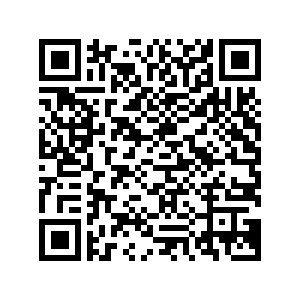BEIJING, March 19 (Xinhua) -- Washington delights in touting such noble terms as democracy, human rights and rules-based international order, but what it does betrays what it truly believes.
The Jan. 6, 2021, Capitol riot, featuring violent protesters, damaged statues, vandalized offices and terrified lawmakers inside the "seat of American democracy," offered a revealing glimpse into America's dysfunctional political system.
"So much for American exceptionalism, for our being a shining city on a hill." When Richard Haass, president of the Council on Foreign Relations, a U.S. think tank, made this comment following the incident, he told a truth that has become increasingly clear.
The United States likes to portray itself as a "Beacon of Democracy." Yet the so-called beacon is getting dimmer, with politicians preaching democracy on the stage while engaging in money politics behind the scenes. As election campaign funds keep shattering the record, political division has been growing deeper.
A Pew Center poll shows that 65 percent of Americans believe the U.S. democratic system needs major reforms, and 57 percent of respondents believe the United States is "no longer a model of democracy."
Meanwhile, internal failure is no obstacle for Washington to lecture others on democracy and even impose its own version upon other nations. Now the world has come to realize that in the name of democracy, what the United States really does is to support pro-Washington governments and topple those it dislikes, all to serve its hegemonic interests.
Such double-dealing forms the true background of the third so-called "Summit for Democracy," orchestrated by the United States and under way in South Korea.
America likes to brand itself as a "defender of human rights." However, the American people have long been frustrated by deep-rooted problems including racial discrimination, gun violence and wealth disparity. The UN Human Rights Committee has pointed out that systemic racism is prevalent in the U.S. police and judicial systems. African Americans are three times more likely to be killed by the police and 4.5 times more likely to be imprisoned than white people in America.
Failing to solve rampant human-rights woes at home, America has waged wars around the world and imposed sanctions on other countries over the past decades, causing large-scale humanitarian catastrophes. Since 2001, wars and military operations launched by the United States in the name of counter-terrorism have killed more than 900,000 people, of which about 335,000 were civilians.
In addition, it has habitually engaged in torture, assassination and spying on foreign political figures. Since the outbreak of the latest Gaza conflict in October, Washington has repeatedly blocked the adoption of ceasefire resolutions by the UN Security Council.
As to Washington's preaching of "a rules-based international order," the international community has realized that the term is no more than a camouflage the United States uses to get its own way. Those rules in its mouth are more often than not meant only for others.
As Xiang Lanxin, a professor emeritus at the Graduate Institute of International and Development Studies in Geneva, said in an article, Washington's "rules-based international order" is not even a peaceful and harmonious system; it only hinders peace and development, and it is not supported by a significant portion of the world's population.
Such voices indicate that the world has woken up to America's hypocrisy. If Washington keeps saying one thing and doing another, its credibility will drain out soon. ■
